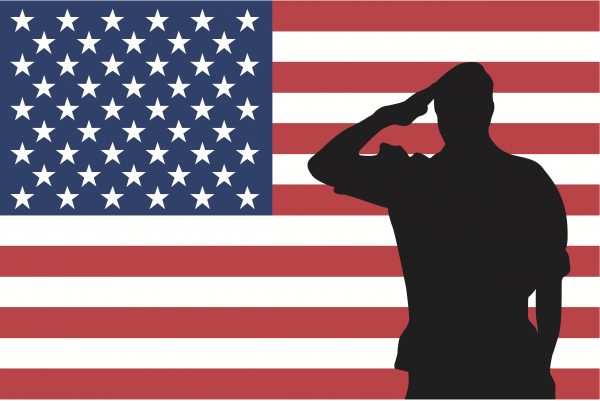
It's big news and rightly so. Whistleblower Edward Snowden is now the US government's number one enemy. He is called both a traitor and patriot by the public, press, and government officials. His story sparked a debate over where America's best interests lie, whether in freedom or in safety.
The Justice Department is gathering all the information it needs to press a criminal case against Snowden, who has leaked secret documents on the NSA's expansive surveillance programs. From Snowden's leaks, it appears that the agency is increasingly focused on regular American citizens rather than terrorists and suspected criminals.
The US government is now actively trying to extradite him, but Snowden continues to evade the authorities. To his defense, the man admits he is not trying to hide by any means, but rather to make sure the information he knew was told to the American people.
Edward Snowden Is a Patriot
I will go on record here and say that in my opinion, Snowden is most definitely and unequivocally a patriot. By no means has he put anyone in harm's way, and he has done nothing more than brought to light the nefarious actions being taken by our ever-developing police state and shadow government.
Snowden willingly risked his life to expose these assaults on our freedoms that were unknowingly occurring. He's a hero, and rather than having to flee his home country, we should welcome him back and embrace him with a hero's welcome. But instead, he faces prosecution if brought back to the US, something he knew before blowing the whistle on the NSA.
So why did he do it?
A Surveillance State
Snowden says that there is more information stored about every individual in the U.S. than most could even consider or fathom. For every American, one in five phone calls are recorded and stored, and every bit of information posted to social media sites are gathered and processed. It appears that anything you say, anywhere you go, anything you have interest in, and anything you care for will be known, or can be, by the government. It is for this reason some say "America is a surveillance state," and sadly it's true.
Snowden mentioned in his first public interview (watch it here) that the NSA should not have the authority to determine who to spy on at will. He goes on to say that if given the word, he could even take a gander at President Obama's personal emails if need be. The power and ability of the NSA's espionage is limitless, and that makes many American citizens a little nervous.
Here's an example of that: Amazon says that in the wake of the NSA scandal, sales for George Orwell's "1984" have risen over 6,000 percent. This is not a coincidence. "1984" tells of a totalitarian society where the government, a.k.a. "Big Brother," knows everything you do, say, and care about. Comparisons are being made between the novel and the U.S. government's surveillance programs, and in the end, it's frighteningly similar. But the benefits of such a state come at a high cost.
Read this counterpoint -- Edward Snowden -- A Fine Line Between Hero And Traitor
Security or Freedom -- You Can't Have Both
The common argument you hear on the radio and on the street is that you have to choose between security and freedom, that you cannot be safe without giving up a bit of freedom. I don't know how this argument began nor understand how it continues. To illustrate my point, here are three quotes I find to be more than apt for this conversation.
If you want total security, go to prison. There you're fed, clothed, given medical care and so on. The only thing lacking… is freedom. -- Dwight D. Eisenhower
If ye love wealth greater than liberty, the tranquility of servitude greater than the animating contest for freedom, go home from us in peace. We seek not your counsel, nor your arms. Crouch down and lick the hand that feeds you, and may posterity forget that ye were our countrymen. -- Samuel Adams
They who can give up essential liberty to obtain a little temporary safety deserve neither liberty nor safety. -- Benjamin Franklin
Now for most of these men, the idea of a surveillance state would be foreign to them since the technologies used to make this happen now didn't exist then. But is it not interesting enough that the principle of giving up freedom for safety has long been opposed? You can find countless other prestigious and notable people who highly oppose the idea of giving a single inch of freedom to the government, and mostly because they know the government will take a mile. Power corrupts, and after 9/11 people just wanted to feel safe and would sadly do anything to achieve that.
So what if the government looks at my Facebook account, so what if it knows what I like to buy and where I like to go. Who cares if it knows who I hang out with, because if asked I would openly admit to it. The point is moot.
The US Government (or any government for that matter) will slowly nickel and dime your freedoms over time until you're broke, or at least severely impoverished. It's a slow process because people are never willing to give everything up at once. The government knows this, and over the years, rather than try to take everything at once, it'll slowly pick away until it has had its gluttonous fill.
Most of the laws that give the NSA the power to operate as it does originate in the Patriot Act, which was passed in short order without sufficient review in a post-9/11 panic. I believe that the concept behind the law is much older than that, and was simply waiting for the right opportunity to make its debut on an American public paralyzed with fear and apprehension.
People are surprised by what Snowden and those he talked to in the press have revealed, but it's a decade old story. And it's one that the American people let slip by during the height of their fear.
 If you enjoyed this piece you can follow Damien S. Wilhelmi on Twitter @JakabokBotch.
If you enjoyed this piece you can follow Damien S. Wilhelmi on Twitter @JakabokBotch.
When he is not concerning himself with injustice in the world, he usually writes on behalf of a Boulder criminal defense Attorney.
Photo Credit: Paul Stringer/Shutterstock

